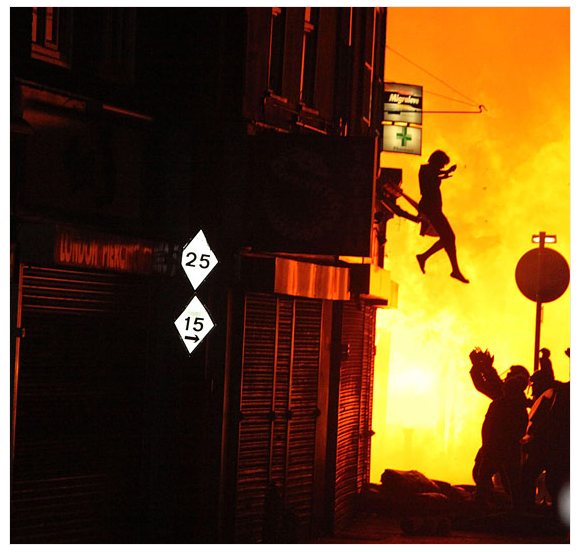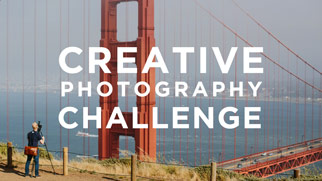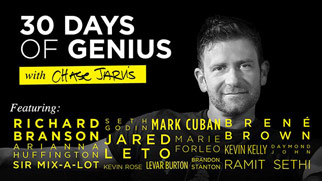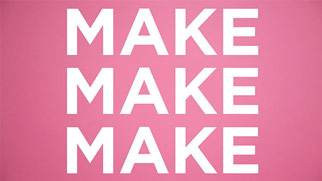To borrow a line from The Clash, “London’s burning”. And the photographs of the mayhem are stunning. The above shot here is by Amy Weston/WENN.com, as seen in NY Mag. (That image and a bunch more images from NY Mag here).
I’ve been been near riots of this magnitude on two occasions – Paris in 2005-6 and Seattle WTO riots – neither of which I photographed. I’ve also seen a guy get hit by a car and had my camera at the ready but did not shoot. And plenty of other things that I’ve not wanted to photograph. As a pure photographer, only-career-I’ve-ever-had guy, I’m not sure what’s in me that doesn’t pull me to want to shoot so many of these photos, even when I’ve had the chance (like this post). I’m deeply moved by such images -ala London riots, or trama, or the war in Afghanistan. Often times these images are so important to our culture, but at other times it’s shallow and cold to shoot them. I’m especially conflicted with the images coming out of London.
How about you… When do we shoot? When do we help or decide not to spread the horror?
UPDATE: Interview with the photographer (Amy Weston) that captured the stunning photograph in the earlier post below in an article over here at my Google+ page …offers some insights into what she was thinking and plays well with the ongoing discussion here on the blog and over at my Google+ page. (Add me to a circle if you’re G+ing so I can meet you too).





















Chase…I share your mindset on this…sometimes taking that shot only victimizes the victim further. Sometimes a moving image, while a great photograph, is an incident so personal to the individual being photographed that its almost an invasion of privacy. Other times, however, taking that shot could mean the difference between a victim being able to recover damages for physical injury, a criminal being brought to justice, etc. Its a VERY hard decision. I also agree with some of the others posting here that in some cases, like this riot, photographing those images only rewards the thugs with the notoriety of performing the criminal act. I would certainly be more likely to photograph those images that so the victimization of the innocent in hopes of bring about consensus to punish the thugs than to photograph those images that merely document the criminal committing the crime. If that makes any sense…
Valid and important questions. It has been raised a lot lately particularly with the number of conflict photographers who have been killed and injured over the past year. Earlier this year “Fresh Air” on NPR had an interview with Greg Marinovich and Joao Silva that, in part, addressed this question. Their book, “The Bang Bang Club,” also addresses these issues. There is an importance to documenting these events. Not everyone with a camera can do it, nor should they necessarily do it. To capture images of events like the photographer putting themselves at risk. They may also be putting others at risk if they need assistance. These are considerations that a person seeking to photograph a conflict must consider before venturing forth.
That’s a good question, and one that needs to be answered well before you’re in the situation to take the photos. So many of these moments are so fleeting that you can’t afford to make a moral judgement call as it’s happening.
My first jobs in photography were as a photojournalist and those questions bothered me a lot at the beginning, then I realized that to do my job I had to shoot first and ask questions later. I know that that sounds crass, but it was the only way for me to function effectively. Just because you have a image doesn’t mean that it needs to be published, but you can’t publish a shot that you missed.
The bigger question happens before you go out to cover an event. What’s the purpose, why am I going out to cover this?
I worked for two years as a photographer for Mercy Ships in Africa http://www.MercyShips.org, one of my responsibilities was to document the needs present in a country. I photographed many things that I would not have felt comfortable photographing had I not been working with an organization that was working to meet those needs.
I am no longer a photojournalist, but I have the utmost respect for the men and women that document our world.
I blogged about this in the context of Jodi Bieber’s World Press Photo Award earlier this year. My conclusion is here.
i would take pictures instantly because they have “news” value…by value i mean story, and history too…i won’t lie, the money from the shots are a added bonus. but the to me the chance to witness a story or even history in the making whether it’s from a good chapter from the human race or a gruesome chapter, to me it doesn’t matter because my mindset is to let the world know and future generations know and maybe learn a thing or two from the images i have captured.
but i also know have a code of ethics that i conduct my self that is based on the norms and culture that i was brought up. i won’t go as far as the paparazzi or the opportunistic vultures that sometimes forget about the human “element” in the story. if i was at scene of some riot and i see a innocent by-stander get beat up by a mob, i would stop taking pictures and help that person. my responsibility to a fellow human in trouble is greater than my need to tell a story. maybe that’s why i can’t be a PJ because of my biased way of viewing my surroundings.